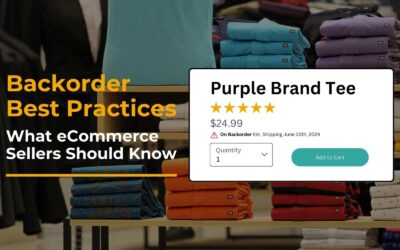Did you know that your website’s search function has the ability to drive more sales?
People come to your eCommerce website to do one of two things: browse a variety of products, or purchase a specific product. Your website’s internal search functionality can help with both. On the other hand, poor search functionality can cause you to lose sales, and unfortunately the “out of the box” search function that comes built into many eCommerce platforms often does not provide the most optimal user experience. Let’s look at a couple of examples of how great search functionality can actually improve sales.
When golf equipment retailer, 3balls.com, rolled out its new and improved search functionality, which gave users the ability to better filter search results, they immediately saw a bump in conversion. In fact, not only did they see a 20% increase in conversion, the average order value on the website increased by 7%, and total page views increased by 40%.
3dballs.com experienced more sales by improving search. Another retailer, American Bridal, experienced increased sales by getting more people to use the search functionality. American Bridal recently implemented a floating search bar on their website. The decision to do so was based on statistics which showed that shoppers that used the search function were four times more likely to convert, and their average cart size was 20% higher than those that did not use search. After the floating search bar was implemented, revenue per visit on AmericanBridal.com increased 34%, and average order volume jumped 24%.
These are just two of many instances in which retailers have been able to increase revenue by placing more attention on their website’s search tool. The user experience can vary significantly from one search tool to the next, so let’s look at a few common ways that online retailers can improve the search functionality on their websites.
Narrow Your Search
Regardless of how many products you sell, a general best practice with search is that you allow shoppers to narrow down their results. This can happen before a user even searches for a product. For example, let’s say you sell cameras and accessories. You have over 1,000 different cameras on your website, including children’s digital cameras. Next to your search bar, it may be a good idea to let users immediately narrow their results by choosing categories or departments, such as “Accessories,” “For Adults,” or “For Kids.”
Once someone has typed something into the search box, the results page should allow users to further narrow their choices. For instance, when someone searches for “digital camera,” on the initial page of results, you should then allow them to narrow their search by different criteria, such as by popularity, price, brand, megapixels, color, etc. This allows prospective buyers to quickly find the type of camera they’re looking for in as little time, and with as few clicks as possible.
Use Search Suggestions
Does your search tool provide suggestions as users type? If not, it should. I do a lot of online browsing and shopping, and over the years I’ve saved a good chunk of time with search tools that recognize what I’m about to type. The convenience and time savings is one thing, but the bigger advantage for online retailers is that it shows your customers what you have to offer. Let’s get back to the camera example. Let’s say I visit your site, I go to the search tool, and I start to type “camera.” I am then provided these suggestions:
- camera accessories
- camera adapters
- camera arm
- camera backpack
- camera bags
- camera batteries
- camera case
- camera canon
- camera charger
- camera digital
I’m looking for a camera case, so I can either choose that option, or I could keep typing. As I start to type “camera case,” I am given these options:
- camera case
- camera case canon
- camera case dslr
- camera case iphone 4
- camera case nikon
- camera case sony
- camera case for women
I have a Sony camera, so that’s the option I choose. You can see how this functionality gets me to where I need to be….quickly. Initially, I may not have thought to be that specific with my search. So not only do these suggestions get me to where I need to be quickly, they help to eliminate irrelevant results. Additionally, I may end up purchasing more than I originally anticipated because the search tool has allowed me to discover other products I could use, which is one of the main reasons that retailers are able to increase average order values with this type of search functionality.
Don’t Forget About Misspellings
Lastly…..and this is one’s a biggie…..don’t forget about misspellings. Words are misspelled all the time, and the last thing you want is for someone to think you have 0 Nikon Coolpix cameras, because they mistakenly typed in “nikon coolpics.”
Most search tools work by serving results based on taxonomy, which is how you organize and tag products on your website. So, as an example, every digital camera should be tagged “digital camera.” Products can have more than one tag, so a digital Nikon camera should also be tagged with “nikon camera,” “nikon digital camera” and other relevant variations. This is also where misspellings come into play. In this case, it would be a good idea to tag all Nikon Coolpix cameras with common misspellings, such as “nikon coolpics,” “nikon cool pics” and “nikon cool pix.”
Some websites will serve results based on your actual search term, and will ask “Did You Mean” something else. Other websites will simply serve up results for the correctly-spelled word, depending on how frequently the term is misspelled, and how advanced their search technology is on the back end of the website.
For some retailers, those like 3balls.com, their time and money should initially be spent on improving the search functionality. For others, such as AmericanBridal.com, the functionality of their search tool works extremely well, and instead their effort is now spent getting more people to actually use it.
By giving users suggestions, allowing them to easily narrow their search, and making sure they find all relevant products, even if they misspell a search term, you will improve the usability of your website, and therefore, have an opportunity to increase sales.





0 Comments